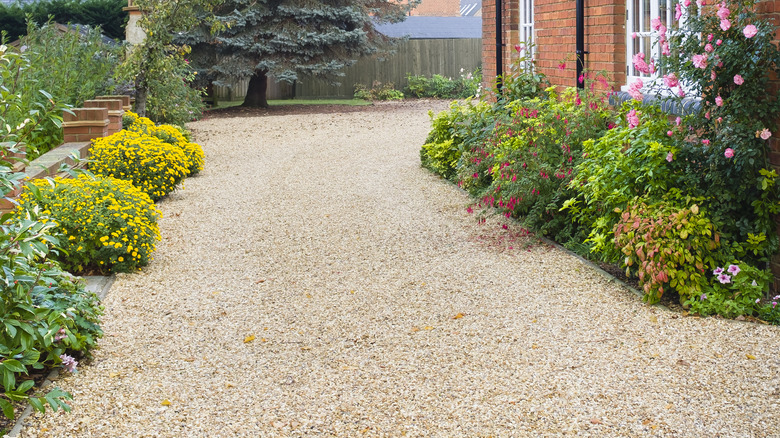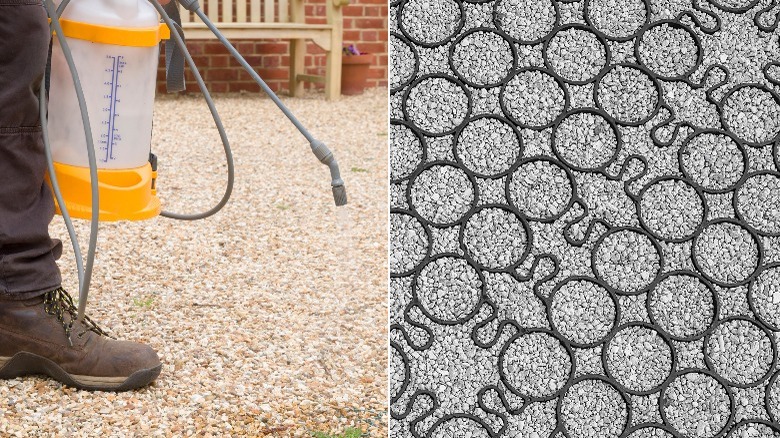How To Keep Your Pea Gravel From Washing Away
We may receive a commission on purchases made from links.
Freshly laid gravel refreshes any home's curb appeal. Many homeowners rely on it in their landscape design or as a driveway or pathway cover. Not only does it offer a clean, natural look, but it also aids in water drainage for your yard or driveway. Pea gravel is one of the most popular types of gravel – it's an attractive and, at only around $5 per bag, inexpensive option. However, one of the downsides of using pea gravel in your landscape design or pathway is how easily the tiny stones can shift, spread, and scatter if left unsecured. The first passing storm or even your next spin with the leaf blower can leave your immaculate landscaping a disheveled mess.
Especially for smaller gravel stones like pea gravel, stabilizing any loose landscaping material is a must. There are two primary ways to secure pea gravel — sealing it with a binding product like mulch glue, rock glue, or gravel glue or using permeable pavers. Choosing which method to utilize depends on factors like cost, maintenance, and user preference.
Secure pea gravel with sealant or permeable pavers
When it comes to preventing gravel washout, both sealants and permeable pavers get the job done. Sealing the stones with a binding agent is an easy and straightforward solution to keep your pea gravel design secure. They are also affordable, costing between $20 and $50 per gallon (1 gallon of Dominator Mulch Anchor covers 300 to 500 square feet). You can usually spray the product right onto the pea gravel to cement them in place, making it very DIY friendly. Especially in tight spaces where permeable paver grids won't fit, such as between paver stones on a patio, a gravel sealant may be ideal. However, sealants should be reapplied every few years as traffic and exposure to the elements wears them down over time.
While using gravel glue or mulch glue on landscaping rocks like pea gravel can be a great way to secure them, permeable pavers are a more durable option. These interlocking grids are made up of open cells in a lattice-like pattern that are filled with the small stones. They do come at a higher price point than sealants, averaging between $8 and $40 per square foot, (72 square feet of TrueGrid Pro Lite Permeable Pavers cost $208), but the grids hold gravel in place over a large surface area with little maintenance. Permeable pavers also keep the gravel more porous than a sealant, which can help prolong their longevity and may even help prevent erosion and flooding. However you use your pea gravel, these methods will help it stay put for the long haul.

